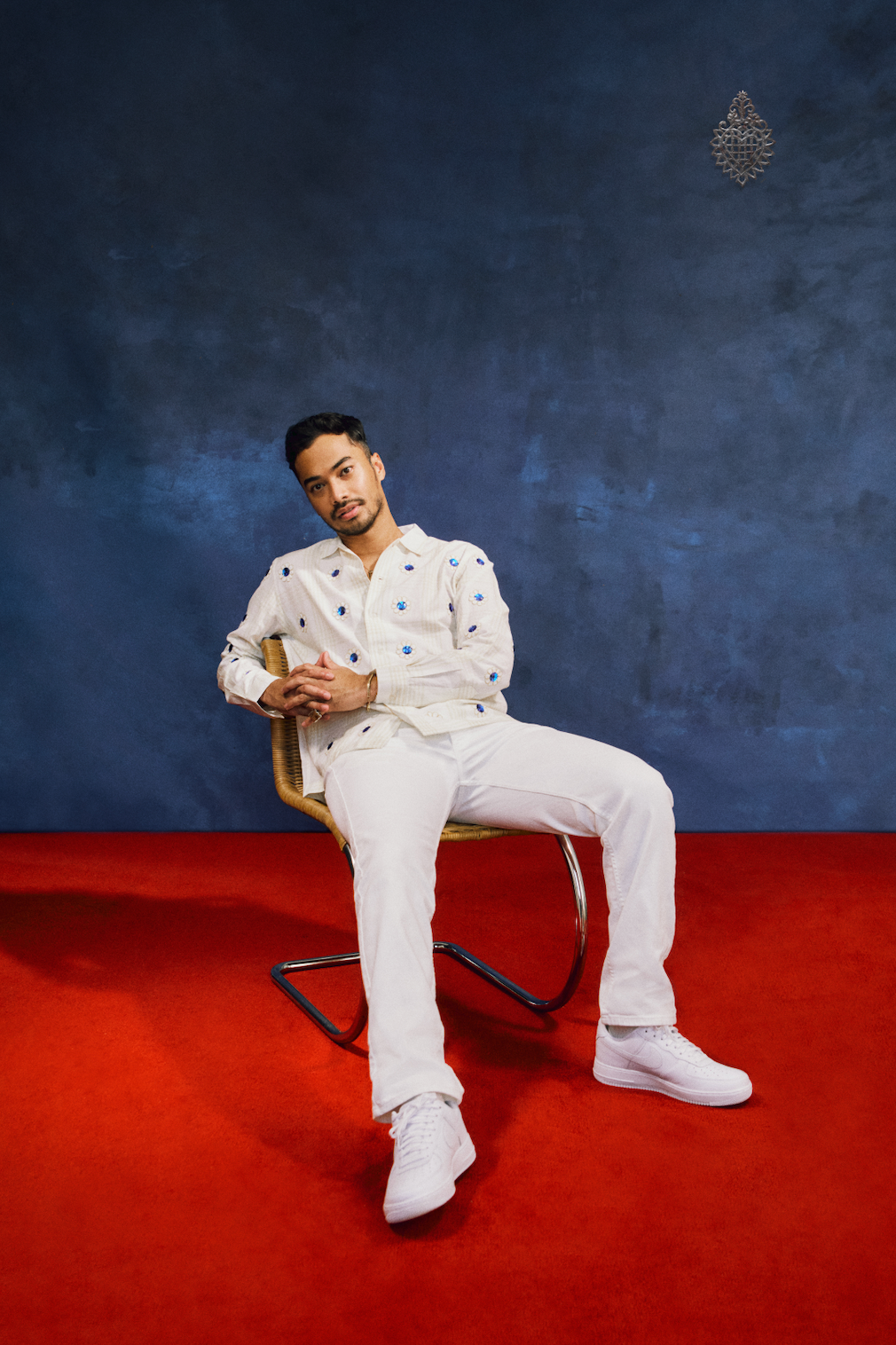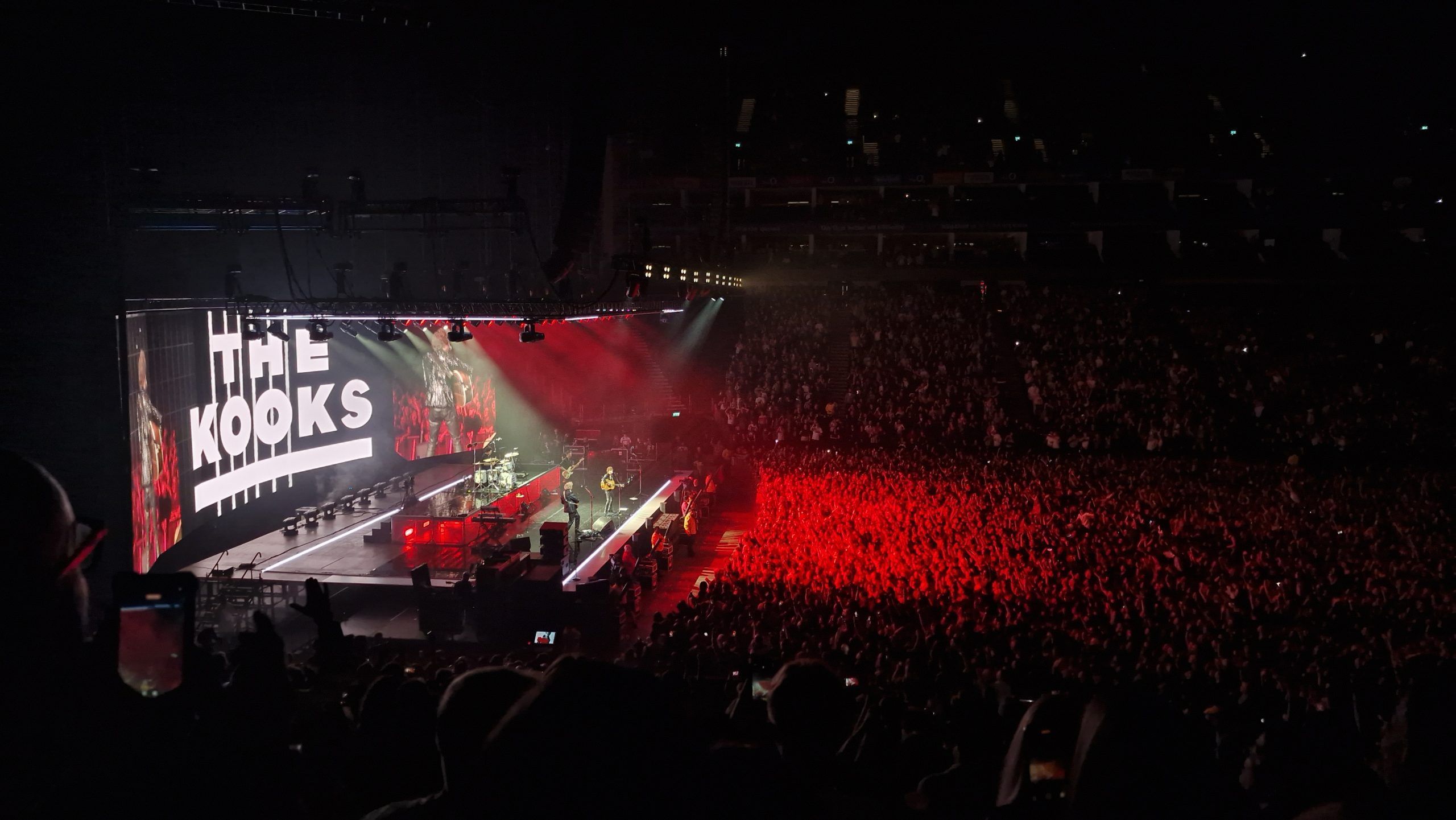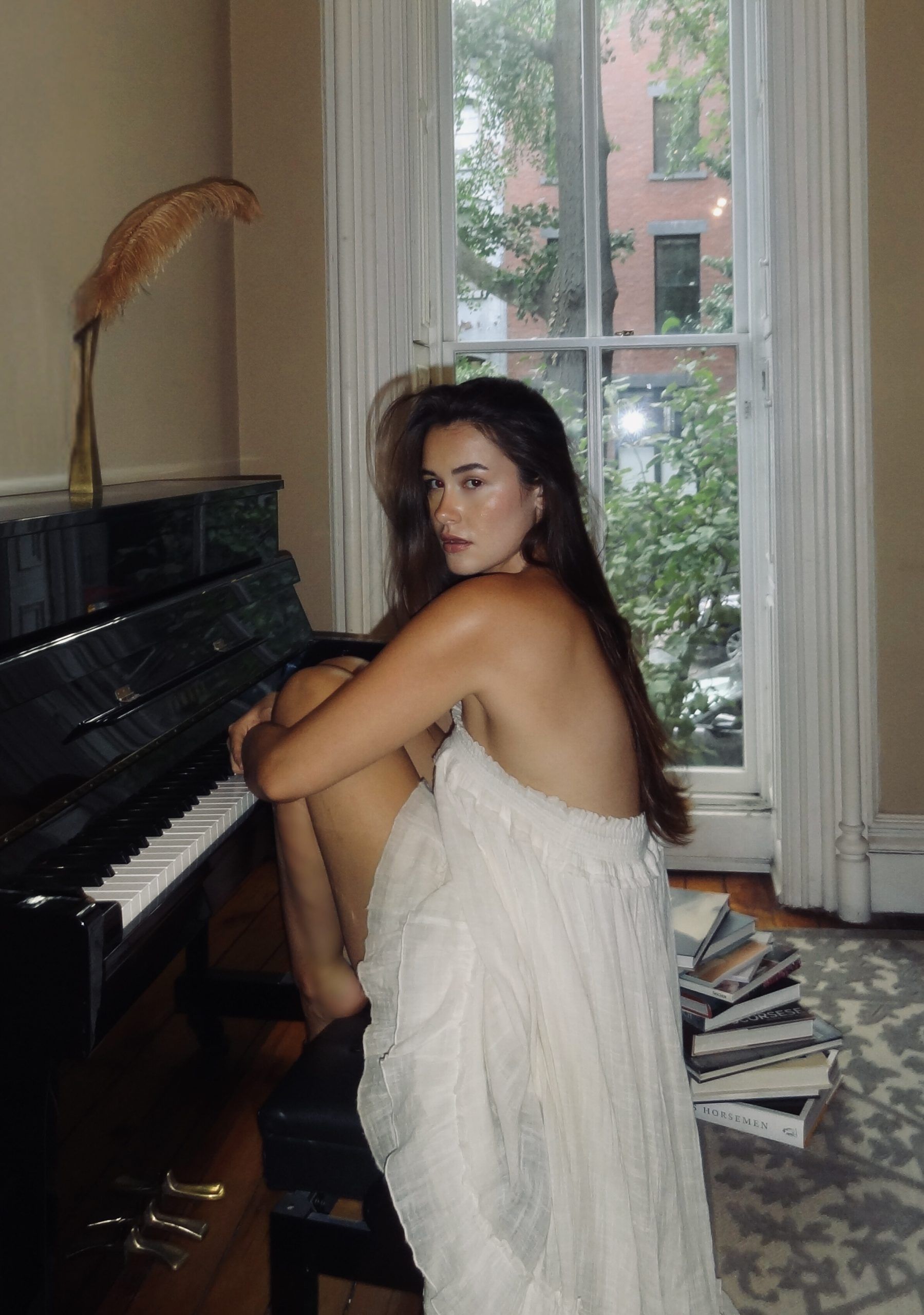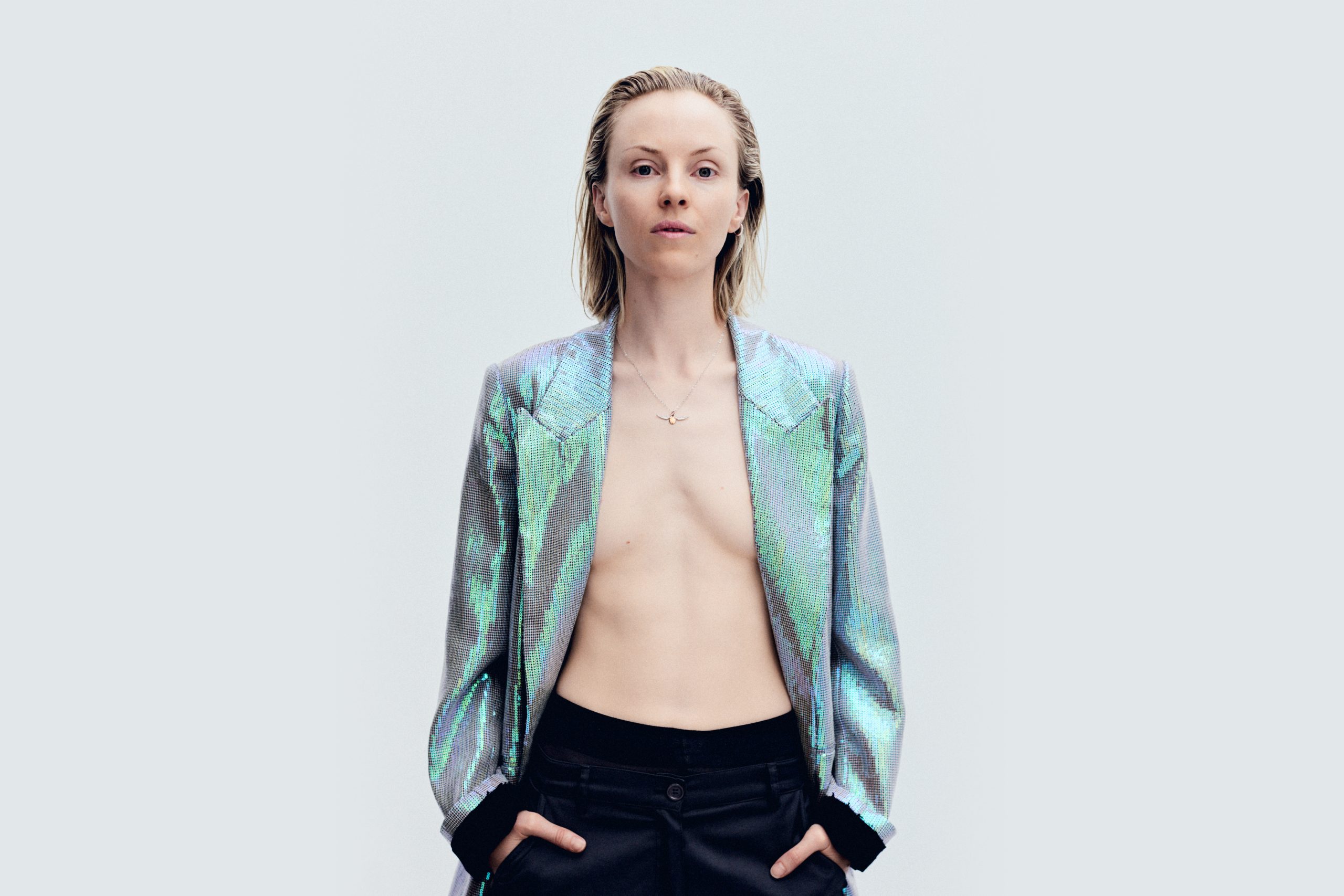Michaël Brun is an artist and producer that makes irresistible dance-floor fillers.
The Haiti-born songwriter’s rise has been an impactful one. Brun first released his debut EP entitled Gravity back in 2013 and since that point onwards he’s collaborated with Ed Sheeran and Mr EAZI, his single Positivo was used as the theme for the 2018 Fifa World Cup, and in 2019 he dropped a stellar debut album named Lokal. Although he’s becoming well known for his distinctive house music sound as an artist in his own right, Michaël Brun also writes and produces for other artists. The musician’s songwriting and production work on the 2020 album Colores by Columbian singer J Balvin led to Brun winning a prestigious Latin Grammy Award. A monumental example that highlights how skilled he is. One of the most admirable and impressive things about the New York-based artist is his dedication to uplifting the Haitian community and how he pays respect to his heritage via his music and through putting on the Bayo Block Party Tour annual event.
Now, Michaël Brun is back with an infectious dance bop called Clueless which features the renowned Nigerian artist Oxlade on vocal duties. To celebrate the release, 1883 Magazine sat down with Brun to discuss how the collaboration with Oxlade came about, his Bayo Block Party Tour, and the one song from another artist that he wishes he wrote himself.

Hi Michaël, Thanks for speaking with 1883 Magazine. Let’s talk about your latest track Clueless featuring Oxlade. Could you tell us about the writing process behind this release and where the idea for it came from?
The writing process for Clueless was really fun and seamless. Oxlade had just visited the states for the first time and our session was at my place in New York. It was actually the first time we met in person too. We had followed each other on socials for a bit and after talking about our inspirations, I remember he was looking at the skyline, and at that point he was just really excited about being in the city. So, we were just having a normal conversation and I pulled out the guitar, played the first progression and we wrote the whole song to the acoustic guitar. There was no production yet, just the guitar and the song. He's a really brilliant vocalist and songwriter and all of the melodies and harmonies and everything came super, super quick. I think most of them were in the first fifteen minutes. So, it was just a really amazing process, and I loved getting to work with him on it.
ᐧ
As a producer and artist that’s collaborated with a fair few different artists, how do you decide on who you want to collaborate with? And as a creative, do you prefer to write music with others or on your own? Both options can be so rewarding!
I think it’s really rewarding for both those versions of myself to get to make music, because when I’m producing for other artists I really feel like I’m in service of whatever the vision of the artist is. They’ll usually have references and their own ideas of what they want the song to be. And then when I’m working for my own project, I also have my own artistic vision, like a specific thing that I want to achieve with the song. It allows me, I think, to explore different sides of the creative space. In terms of who I choose to collaborate with, that usually comes from vibe. So, if I’m meeting somebody for the first time in the studio, I generally would have already heard something from them. Something that they’ve released in the past caught my ear or something that I saw really was interesting. I think vibe is so important when you’re making music because you actually have to connect with whoever you’re working with. I look for somebody whose overall sound or vibe really connects with mine.
It’s amazing that through your career you’ve been able to put a spotlight on your native culture. You not only do this through your music but also through an annual live event called the Bayo Block Party Tour. How long does it normally take to organize the event and what’s been one of your favourite moments from it so far?
BAYO, the events that I’ve been doing now for seven years have always been really important to me. As soon as I started making music in Haiti, when I was focusing on working with talent from the country, it became pretty clear to me that a lot of our music is underrepresented in international spaces. There might be segments of different cities where the diaspora is present, but overall, in the wider American, European, Canadian or any other international spaces, you might not necessarily have Haitian artists at the scale of the Fugees, which were so, so huge and at that point became really ubiquitous in pop-culture. I really wanted that block party concept to be a way for me to bridge all the Haitian artists that I’m working with, Haitian culture, and things that really matter to me from my own heritage. While, at the same time, fusing that with these other spaces that I’ve been either working with. Whether that’s electronic music, Latin music, or African music. I really wanted BAYO to be a kind of intersection point of all of those sounds. The diversity is there and I also wanted to be in spaces that were traditionally for pop acts or rock bands or American-sounding, traditional pop songs. I think it was really important that you go to the venue or that you go to the show and then you just see amazing Haitian art and amazing international art. And I think it helps contextualize all of the sounds into one show.
What is one song from another artist that you wish you had written and produced?
Honestly it changes so often, but I’d say recently it’s probably “Feel Good Inc” from Gorillaz and De La Soul. I think just because of the recent passing of Dave I’ve just been thinking a lot about them and the influence that they had in hip hop and then also Gorillaz in general, being such an iconic group. I loved that song when I was a kid and I think even some of my production tendencies have come from things that really inspired me when I was younger. So, yeah that’s a massive one. I wish I had made that.
Winning a Latin Grammy award must still be a big highlight for yourself. Can you recall the moment you found out you had won?
Yeah, winning a Latin Grammy was massive. That was such a cool experience because José actually told me before we even submitted the album officially to release, he was like, “you’re going to get a lot of attention from this” and he’s been such a big supporter and I’m really grateful for our friendship and that he trusted me on production and having such a big role on Colores. I was just watching on TV like everyone else, and then, he got called up and it was three nominations, and we got that win for the album. So, definitely a big moment in my life and I’m incredibly grateful. And also, more stuff for sure coming soon.
As a producer, what is one common misconception about producing that you would like to demystify?
I think, more recently, I’ve really seen the value in production in terms of mood/space and what you don’t do to a song. In the beginning I always thought of it as really additive but I also think that as I’ve been working with more artists as a producer while also having my own artist project, I’ve seen that artists will have a lot of ideas already. So much of production in the more recent way that I’ve been doing it has been kind of stripping back to the core of what the artist is trying to say and getting the most simple version of whatever the idea is so that it still has impact and it still feels urgent, and that it means exactly what they want it to mean, but at the same time it’s simplified and it’s easy for people to just understand. I think it’s almost like sculpting. I definitely view production now more as this big slab and then you’re piecing away at it to reveal whatever the core concept is.
From your time in the industry so far, what have been some of the biggest lessons you’ve learnt?
There’s a few. I would say right now at this point in my life it’s definitely consistency. I think that’s the trend I’ve seen in artists that have life-long careers, they are really consistently working at what they’re doing. They’ll have waves of success where what they’re doing at one point might not be the most current, but then, if they stay consistent with what they’re doing, their touring continues to thrive and they have a core fan base which allows them to exist and continue to make music for the rest of their lives. I think that’s a really beautiful thing, to have a career in art and industries that are very passion-driven while having stability in them. So, consistency’s definitely a major lesson, and a trait that I’ve seen with the most successful people I know is that they’re some of the most consistent people in the world.
Finally, what is one thing you would really like to achieve this year?
I would love to really bridge as many parts of the world as possible. That’s really what my project is all about. I have the amazing opportunity and privilege to travel the world and work with all kinds of incredible artists in different genres, from different countries, with different stories. I think my project is really about bringing all these different people together, family and friends, and putting them into a space where they all thrive and that we see the similarities between our songs. Because, I think all these different people have inspired me over the years and it’s definitely influenced the way that I view the world and the way that I make music. So, I would really love, if, through my project, more people feel that way, that there’s just more unity overall in the world.
Clueless featuring Oxlade is out now. Follow Michaël Brun @michaelbrun
Interview by Cameron Poole
Featured image by Nayquan Shuler





